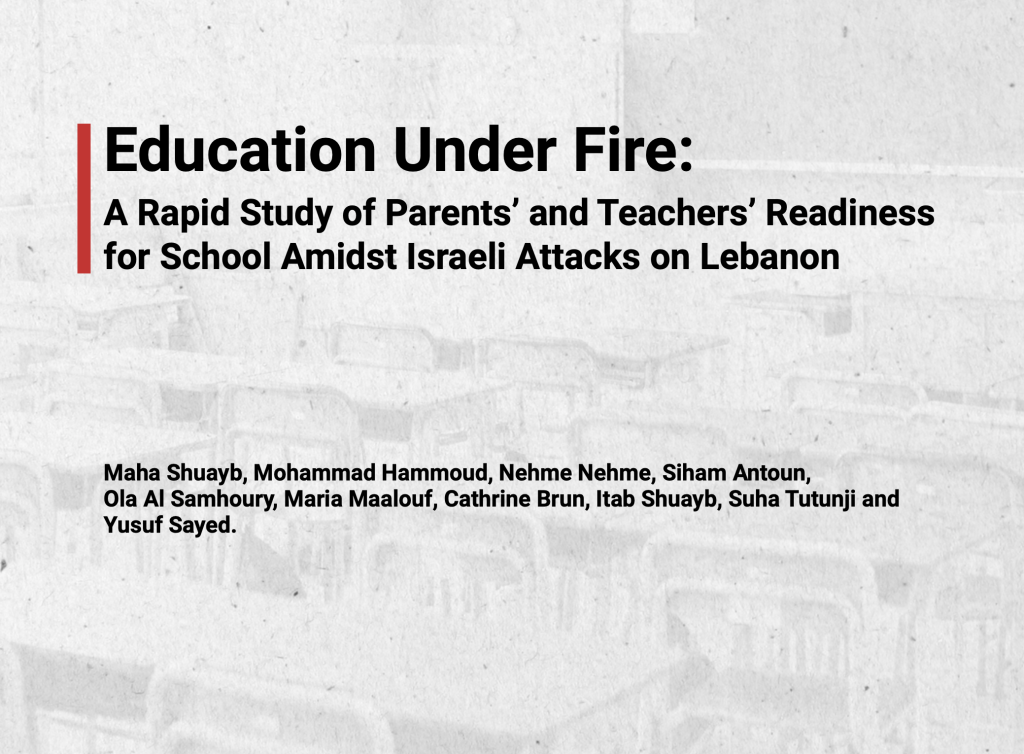By Maha Shuayb, Mohammad Hammoud, Nehme Nehme, Siham Antoun, Ola Al Samhoury, Maria Maalouf, Cathrine Brun, Itab Shuayb, Suha Tutunji and Yusuf Sayed.
“Our children are eager to return to their studies and don’t want to fall behind. Any form of education is better than none” (A Lebanese Mother, Tripoli).
Israeli attacks on Lebanon which engulfed most of the country on 28 September resulted in the displacement of over 1.3 million civilians, the killing of almost 3,500 civilians and injuring over 14,000. It has also resulted in the closure of schools. This rapid study examines the varied impacts of the war, particularly vulnerable groups, children with disabilities and Syrian refugee children. Employing a mixed-methods approach, the study combines quantitative data from surveys with qualitative insights from interviews and focus groups, which were conducted in mid-to late October 2024.
Our findings reveal that following Israeli attacks, 40% of public schools have been repurposed as shelters, whilst a further 30% are in war zone areas, severely limiting available space for schooling. By November 2024, over 1 million students and 45,000 teachers have been directly affected by the conflict, with 95% of public education teachers unable to access school. Forced displacement has significantly disrupted the lives of families and teachers, with many facing housing instability, loss of income, and rising living costs. A high percentage of parents and teachers have lost part of their income, with 77% of parents and 66% of teachers reporting financial strain due to the aggression. 95% of parents and 89% of teachers report an increase in household costs due to displacement and the war. The emotional toll on families and teachers is profound, with many displaced families living in overcrowded conditions, further complicating the ability to support their children’s education. The financial burden on teachers, especially contractual staff, has been exacerbated by the suspension of afternoon shifts for Syrian students and ongoing salary devaluation.
Read the full study here.

